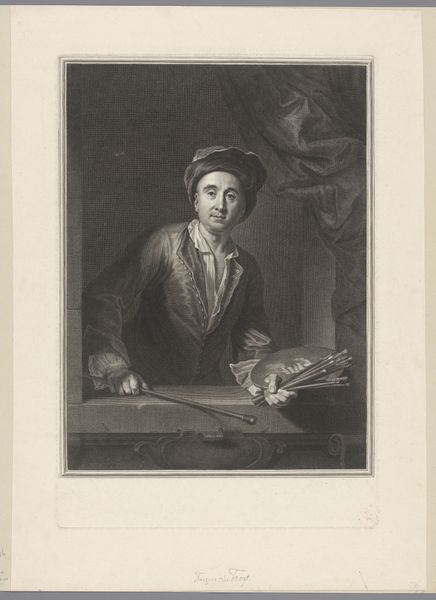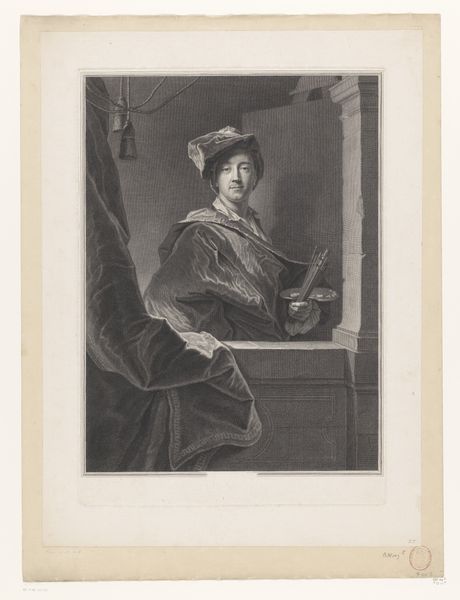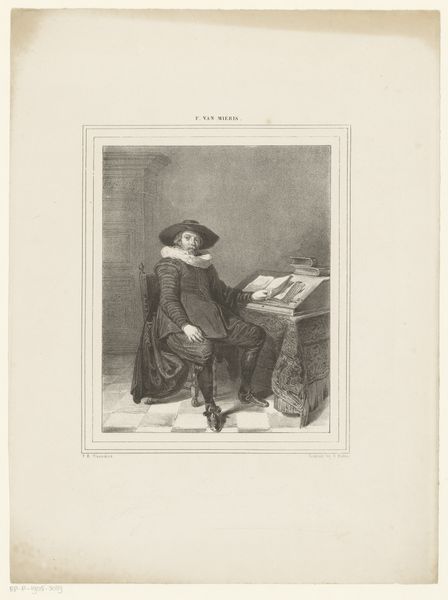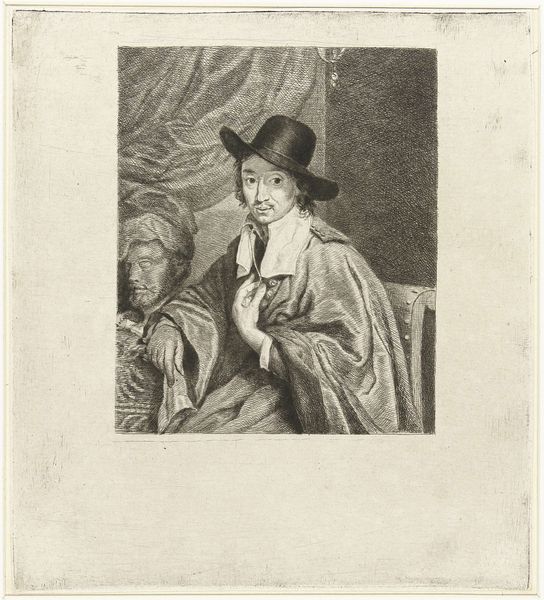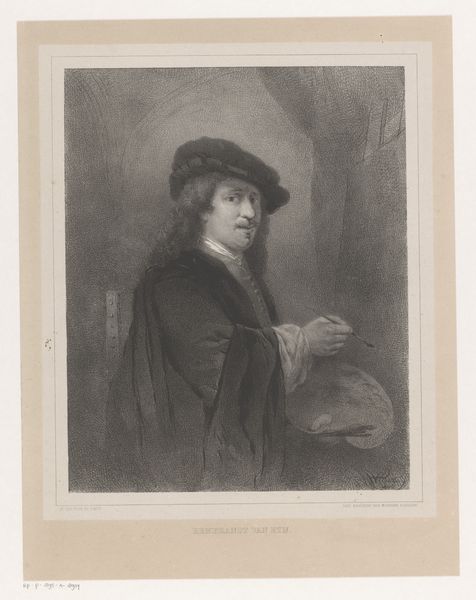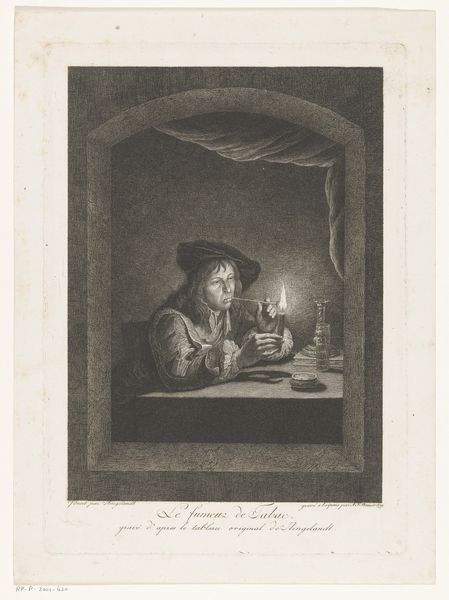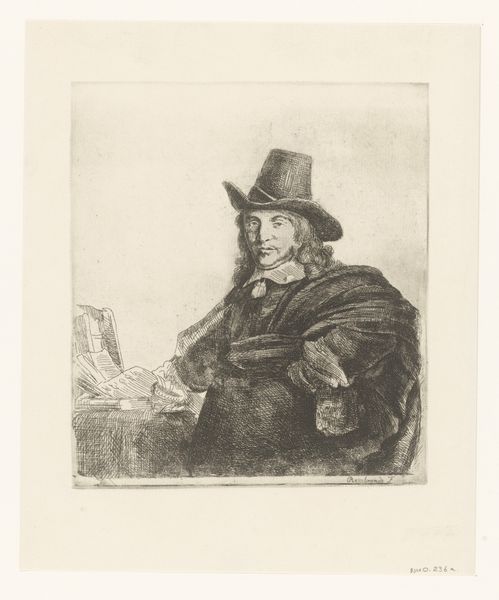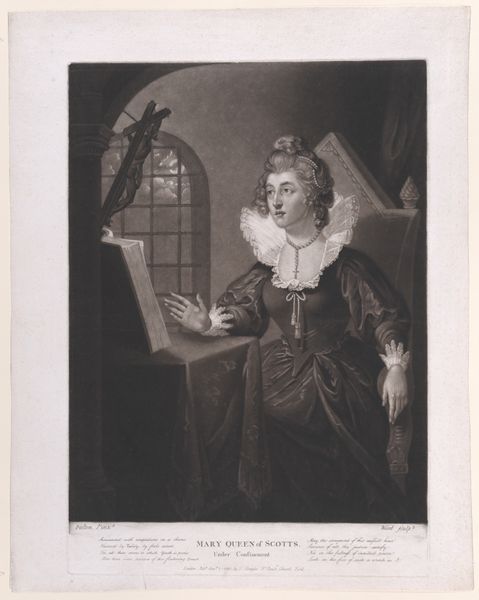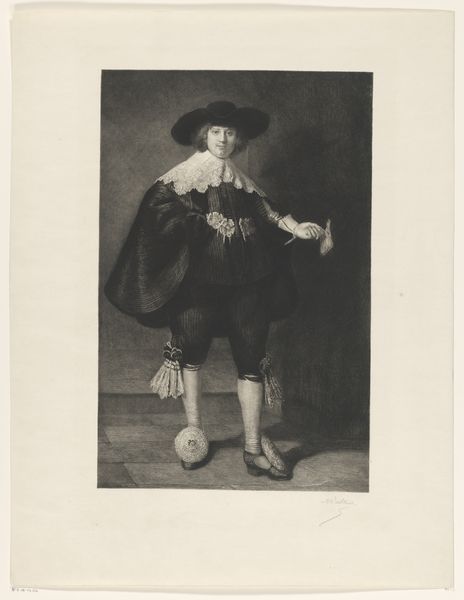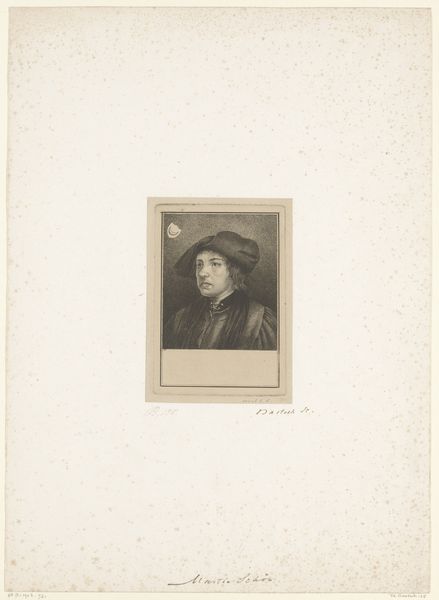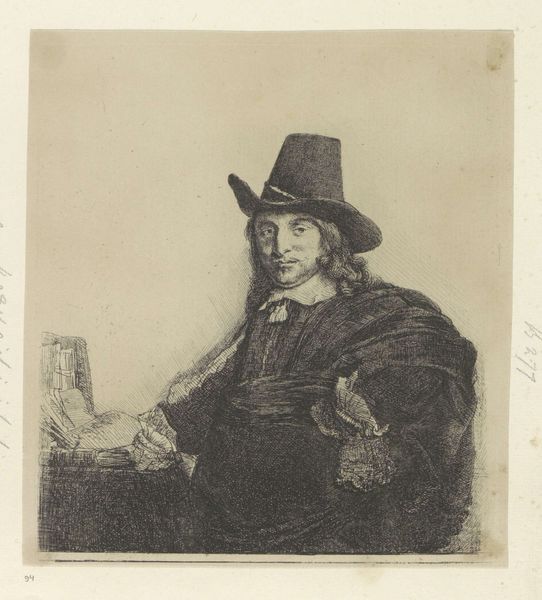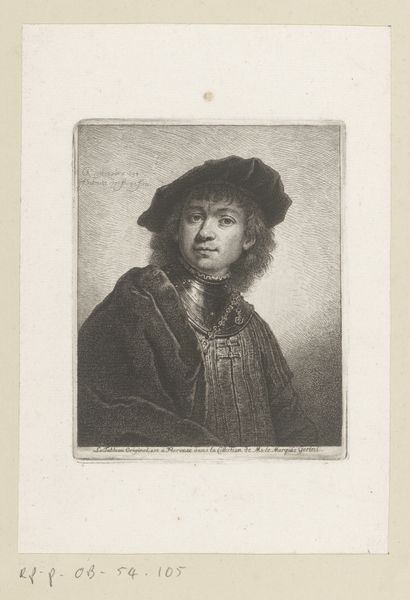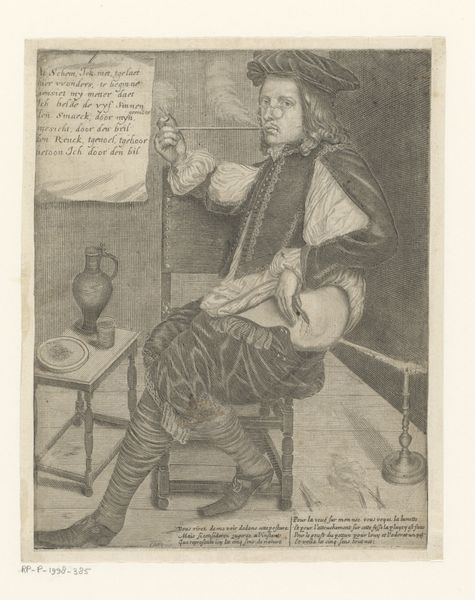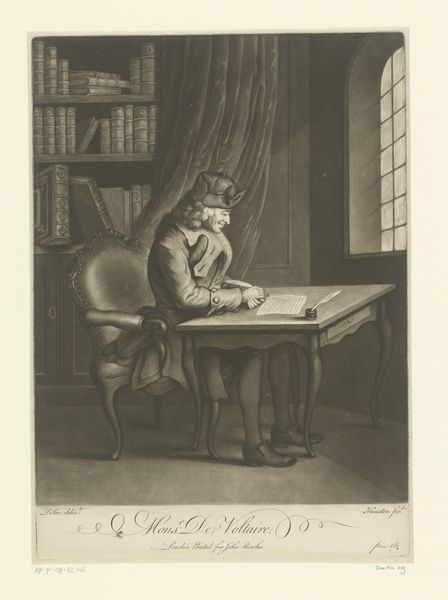
Dimensions: height 252 mm, width 208 mm
Copyright: Rijks Museum: Open Domain
Curator: Let's delve into William Pether's "Man Smoking a Pipe," an engraving from 1768. Editor: It's a rather domestic scene. I'm struck by the textures - the smooth glass of the bottle against the rough wood of the table, the way the artist contrasts them. What's most interesting to you about this print? Curator: What fascinates me is thinking about the act of creation here, the *process* of it. Look closely at the labor involved, not just of the artist, but also considering the tobacco industry behind this depicted subject. Editor: So, the means of production extend beyond just the artist's hand in creating the print? Curator: Precisely! The consumption of tobacco, even something as seemingly simple as depicted here, is rooted in an entire network of colonial trade, agriculture, and labor exploitation. Pether's print isn't just a portrait, but an index of a vast and complex global market. Does looking at the material and social dimensions of the print change the way you perceive the imagery itself? Editor: Absolutely. It transforms a simple genre scene into a visual representation of broader economic and social systems. It also made me question the class status of the smoker himself. Was it more widespread or enjoyed more by a minority in the 18th century? Curator: It's a powerful example of how art is never truly separate from the world around it; even portraiture holds information about the social context in which it was produced, circulated, and consumed. Editor: I see the value in looking past what is rendered to acknowledge the structures, methods, and social histories involved in this creation.
Comments
No comments
Be the first to comment and join the conversation on the ultimate creative platform.
